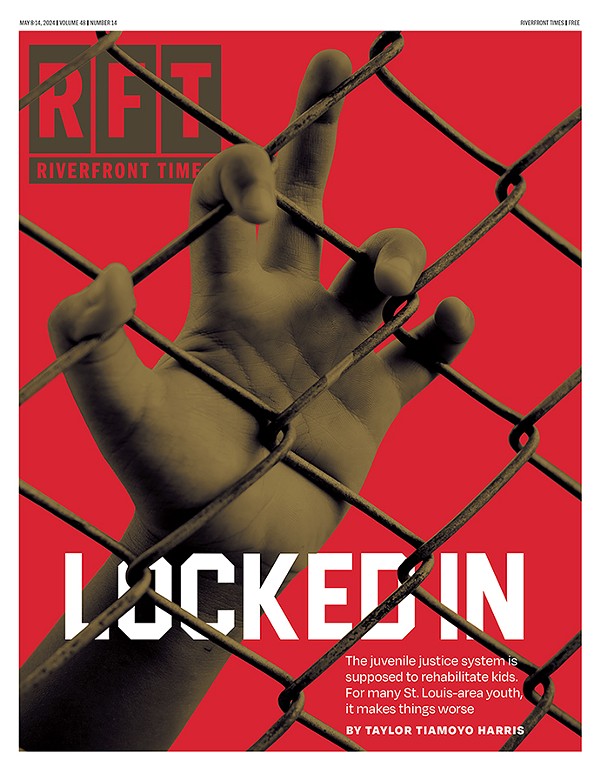Powell's work, though, doesn't seem the result of a once-over and a shrug. He's written words good enough to support the sharp, sweet observations of the 12-year-old narrator of his superb 1984 novel Edisto. That narrator, Simons Manigault, graduated from college still sharp but somewhat disillusioned and told a story of self-imposed heartbreak, Louisiana bars and wistful understanding in 1996's Edisto Revisited. Powell's recent short-story collection Aliens of Affection ended up a New York Times notable book of 1998.
When he's writing, says Powell, "Form is a consideration, but it's not on the front burner," and then he thinks about it and changes his mind: Form's not even on the back burner but in the warming tray underneath the stove. This instinctual, "that's a wrap" process shows through some of Aliens of Affection's stories, like the 100-page three-part centerpiece, "All Along the Watchtower," in which a man mentally off-kilter skips therapy, heads to Mexico ("I want to locate me a fifty-pound Chihuahua") and ends up patrolling atop a wall (thus the story's title) and encountering aliens (thus the book's title) that are "all gooshy and weird, etc. They made calming hand gestures." The fun of reading a story like this -- all randomness and word associations -- is several degrees below the fun, I imagine, of writing it.
But not every story clings to such a barely warmed structure. The opener, "Trick or Treat," although episodic, is a tight, bright gem. Here a fortysomething woman contemplates an affair with a 12-year-old boy, "un Lolito," though he's nothing that even closely earns any Humbert Humbert rhapsodizing. "The child was a portrait of insolence and had wanted to say not 'What are you talking about, lady?' but 'Hey, lady, how about some pussy?'" To win the woman's favor, the boy stealsa lawnmower and offers to cut her grass. Meanwhile, she talks to him about the South -- a.k.a. "the trees and air and houses and suspiring history and ennui and corruption and meanness and game violators and bottomland ... and heroism and stray pets around them." He in response asks, "The South? What's that?"
It's a wry, significant question for Powell to put into the mouth of his grubby, stick-legged Southern Lolito. Powell was born in Gainesville, Fla., and grew up "mostly" in Jacksonville. A glance at the South reveals that the marshes and beaches of Florida -- which had only brief bouts of Civil War -- couple uneasily, even fumblingly, with the rest of the old Confederacy.
"I'm Southern, but I am part of the north-Florida thing, which is not, properly speaking, the genealogical South," explains Powell, who, after a stint in Texas, ended up back in Gainesville, teaching at the University of Florida. "So when I get around the boys in their chinos and Wild Turkey who are part of that South, I'm alienated from them and looking at them and studying them, which is basically the generation of my book Edisto. I'm not part of that gang, and the way I could become part of that gang was to haul off and take a shot at them. And it worked. That book got on every coffee table in the low country."
At the same time it's not as if the "north-Florida thing" doesn't breed the deep histories and patrician elegance of, say, Mississippi. When interviewing for the job at UF, Powell kept quiet about his Gainesville roots, afraid that fact would work against him. The university officials took him on a tour of the city, and "we went by the largest house in town, which was my great-grandparents' house, which has a plaque on it that says 'The Padgett House.'" None of the guides made the connection -- Yankees, obviously. Powell's response? "I said, 'Oh, that's a nice house.'"
Family names, significant dates, the graceful acceptance of a lawnmowing as a chivalric gesture -- these go to the heart of the genealogical South's boys. Edisto, named for an island off South Carolina, got their attention and showed Powell's interest in pushing the quirksof his surroundings through a sieve to produce a concentrated, verbally thick version of the contemporary South. Nonetheless, he was somewhat leery when asked by editor Shannon Ravenel to contribute the preface to the 1998 edition of New Stories from the South.
"There is something hokey about something being exclusively Southern, just as there's something hokey about any exclusivity -- an anthology of writing by white, heterosexual men would be hokey -- but (Ravenel) asked me to do the preface, and she had a good fee dangling in front of me, and I was in France doing nothing else. I'd just written a chapter of a novel that I thought I could call a preface, so I did. So it was a very noble response on my part all the way around."
The resulting chapter-as-preface, though clearly a piece of fiction, proposes that characters in Southern fiction are all, on one level or another, defeated. Does this description hold for the Southern writer of today? "Implicitly here I've got to read that thing and pretend to understand what I intended to mean," Powell laughs. "The thesis there is that the people of the South are whipped and won't admit it -- some will, some don't -- and I suppose the corollary thesis is that the writer, their chronicler, the person from them who can write, is also whipped and will or won't admit it." But don't go thinking this idea suddenly makes sense of the style and oddness of Southerners. "All of this was probably just designed to enrage a certain sort of proud person," says Powell. "That's its aim. Its aim isn't to be right or smart."
It's hard to measure enragement. But the 1998 edition sold more than any other, leaving the publisher quite un-enraged. "They're apparently happy with it," notes Powell. "They don't care that they've insulted their audience."
All this talk of the South followed from a question about whether, as a Floridian, Powell strictly qualifies as Southern. It's a question that needn't have been asked, considering the evidence. Such as the fact the he can tell an anecdote about William Faulkner and Sherwood Anderson whose punchline goes, "He promised to get it published if he didn't have to read the novel but could keep the bottle of whiskey." And that he knows where to find top-quality handmade knives (Randall Knives in Orlando). And that he can roll out an endearing, buttery, fluster-inducing charm ("Your name is beautiful," he offers, apropos of nothing). All sure marks of Southernness.
But best of all, Powell's language is a feast, and it's funny in a way that's rooted in the cadence and timing of the South. In Edisto Revisted, Simons, fleeing the unexpected happiness of a relationship (with his first cousin, but incest is a whole 'nother story), ends up in Louisiana and stops his car at "a logging canal on a bayou named, as near as I can tell, Tennessee Williams." Along the canal "shortly came loping toward me a giant nutria, bounding part beaver, part rat." Louisiana seems to him "a weird admixture of ordinary South -- landscaped colonial brick Farmers & Merchants Banks at crossroads where there appears no need for a bank, or for a crossroads, or for roads, and no farms are about -- and unordinary South."
Powell's writing, ingrained in yet alienated from his surroundings, chronicles the boys who shoot nutria for kicks after a day at the bank. Noticing that even the ordinary South is rather queer, he's whipped, possibly. But good-humored about it.
As part of the Creative Writing Program Reading Series, Powell reads from his works at 8 p.m. Thursday, March 25, at Washington University's Hurst Lounge, Room 201 in Duncker Hall. The event is free; call 935-7130 for more information.





